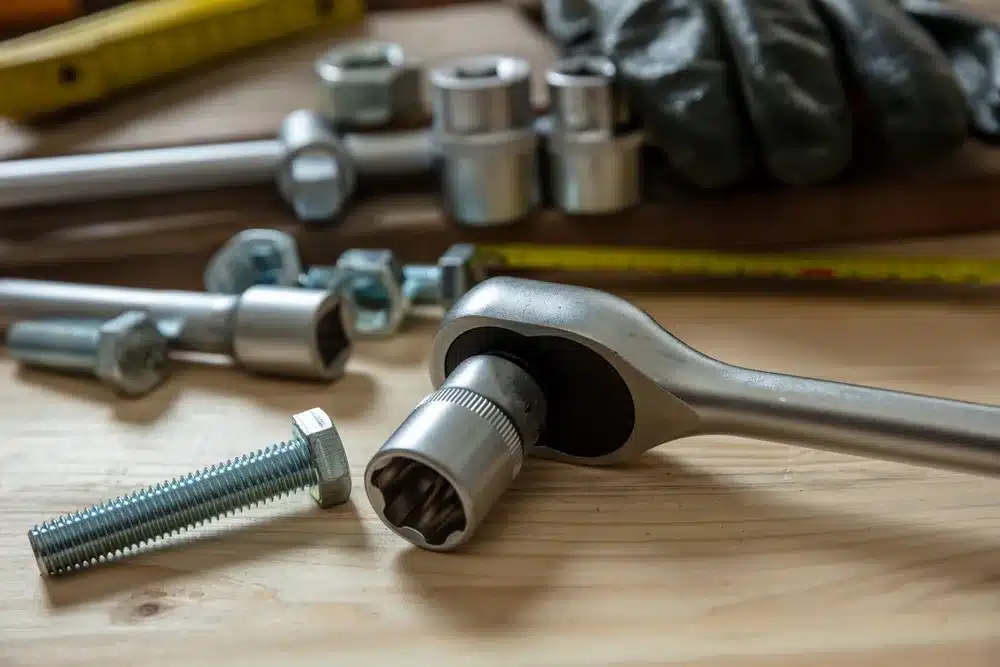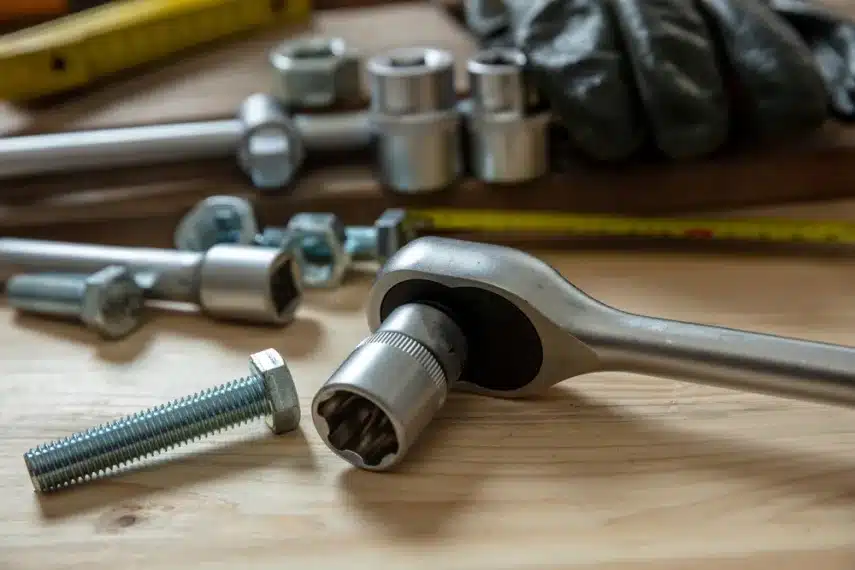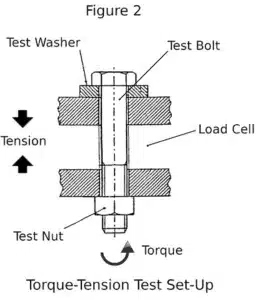At the heart of what makes fasteners reliable and resilient is the concept of torque. Torque isn’t just a measure of turning force; it’s the key to ensuring that the components and machinery held together by these small but mighty parts stay put.
Below, we’ll take a look at the science behind calculating fastener torque. Hopefully, it can provide some insight into how to achieve better performance, safety, and reliability in fastening applications.
Understanding Torque
Torque is the rotational force used to turn a nut, bolt, or screw as part of a bolted joint. You’ll see torque measured by Newton meters (Nm) in metric units and pounds per foot (lb/ft) in inch units.
The Relationship Between Torque and Tension
Torque is closely related to another measurement: tension, or tightness. In fact, one is rarely discussed without reference to the other.
The relationship between torque and tension is simple: As torque increases, tension in the joint increases. The more force you use to turn a fastener, the tighter the bolted joint gets.
Why Is Fastener Torque Important?
Torque is a critical measurement in the fastener world. It’s important to pay attention to and get right for your application. Why?
An under-torqued bolt will be looser than necessary and will not be able to provide as much clamping force as needed. An over-torqued bolt may deform — thread stripping, heads popping off, etc. — or break. That last bit is important to remember, as many believe that tighter is better. That’s not always the case.
Factors Affecting Torque Calculation
The most important factor affecting the relationship between torque and tension, and therefore the appropriate amount of torque, is friction. There are several factors that can affect the amount of friction in a bolted joint, including:
- Coarse vs. fine threads – Fine threads have more friction than coarse threads.
- Class of thread fit – Thread systems with a tighter fit have more friction than those with a looser fit. For example, 3A/3B is a tighter fit than 2A/2B, and thus more friction for 3A/3B.
- Material and grade – The type of material used, and how hard it is, will impact friction.
- Coatings – Different fastener coatings will have a large impact on friction.
- Bearing surface conditions – The amount of surface area, and how rough it is, affects friction.
- Lubrication – Different lubricants will also have a large impact on friction.
How to Calculate Fastener Torque
There are a couple ways to calculate fastener torque: with a mathematical formula and a physical test.
Fastener Torque Formula
The equation T=kDP is used to estimate fastener torque calculations, where:
- T = Torque in newton-meters (Nm)
- k = Coefficient of friction
- D = Diameter of the fastener in millimeters (mm)
- P = The desired tension in kilonewtons (kN)
Torque-Tension Testing
To calculate fastener torque, you can run a torque-tension test. A torque-tension test is the measurement of the input torque required for a bolted joint to achieve a specified tension.
A typical test setup is shown in the photo below. It consists of a test bolt, test washer, and test nut loosely fitted in a test fixture called a Skidmore. The test fixture contains a load cell that can measure the amount of tension in the joint.
The nut is turned slowly until a preset amount of tension is reached. As the joint is tightened, this action stretches the bolt, creating a clamp load on the joint (in this case, the Skidmore). The amount of torque needed to rotate the nut to the desired tension is measured.
Related Fastener Specifications
There are two industry specifications that are good to be aware of when it comes to fastener torque: USCAR11-2 and ISO 16047.
- USCAR11-2 “provides a test method for determining the torque-tension relationship of a fastener finish as applied to a surrogate screw for the purpose of measuring the frictional characteristic of the fastener finish.” It’s a standard that was developed and is maintained by the US Council for Automotive Research (USCAR) — a blend of Chrysler, Ford, and General Motors employees.
- ISO 16047 “specifies the conditions for carrying out torque/clamp force tests on threaded fasteners and related parts.”
Get Torque Right with Test Fasteners from Wilson-Garner
If you work with fasteners, coatings, and other essential components for the automotive industry, then you’re likely familiar with mandated and standardized tests like torque-tension, bearing surface, and coefficient of friction tests. Whether you’re completing a standard test or an OEM-specific test, we manufacture the test fasteners you need to complete those tests with confidence and accuracy — all at our facility in Harrison Township, Michigan.
Request a quote for your test fasteners here, or contact us for more information.


